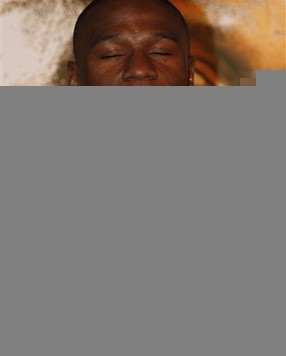Troy Davis is scheduled to be executed in Georgia today, having been convicted with shoddy evidence and witnesses who recanted. Last night, coincidentally, I went to see the film “Black Power Mix Tapes” at the International Film Center in New York. It is also ironic since a sports marketing firm was papering the house on 42nd Street for a screening of “Moneyball,” a baseball film. I had been in line with everyone else to see that movie, realized I didn’t need to see Brad Pitt, and wanted to catch “Black Power” before it left town. Everyone should see it. The film is a chronologically organized collection of footage that a team of Swedish journalists shot in the United States from the mid 1960’s through the early-to-mid 1970’s. Tracing the advent and growth of the Black Power and Pan Africanism movements here, the film features interview footage of Bobby Seale, Stokely Carmichael, Angela Davis, Malcolm X, Louis Farrakhan and many others who drove, and sometimes exploited, the movement.
But while he was never once never featured, never interviewed, or spoken of in the movie — which sort of surprised me — Muhammad Ali came to mind this morning when I woke up wondering what I could, myself, do, or could have done about Troy Davis. At this writing, Davis is scheduled to die today by lethal injection but is demanding that he be administered a lie-detector test.
I thought to myself, “Muhammad Ali would have been there right now; he would have been very vocal about this.” But where are today’s militant African American politicians, icons, artists? I asked myself this question when I saw a story on Yahoo! front page about Michael Jordan’s wonderful new golf bag, which features depictions of all of his playoff rings.
And I asked myself that question when I thought about Floyd Mayweather, Jr. He is not only, arguably, the best boxer in the world, he is also (except when he says stupid shit on YouTube) a ring general in the squared circle of the digital and traditional media worlds, and he is rich as God. Wow, if anyone has a podium to talk about Davis’ plight, or any plight he chooses, it’s Mayweather. How hard would it be for him to take that little Flip camera he used to berate Manny Pacquiao about his sushi-making abilities, and use it to tell Georgia, “I will never spend money in your state, I will never fight there, I will never visit Georgia, and I will make sure nobody I know does either, and I challenge all other African American athletes, etc. to do likewise.” What does he have to lose? Endorsements?
After all, he has spoken frequently in different ways about how racism has played a role in how he’s perceived by the (white) media. And, in the case of Davis, he would have an analog: the media has largely given the spotlight to the officer and family, but pretty much ignored the possibility Davis is the wrong man. And his position wouldn’t be a only one: both sides of the aisle, and groups around the world are going to be protesting heavily today. Amnesty and the National Association for the Advancement of Colored People will be there, outside Georgia’s Diagnostic and Classification Prison.
But while it’s easy for me to speculate about what Muhammad Ali would have done today versus Mayweather — what he would be now, as a “citizen” (a word that has been replaced by “consumer”) — if he were that same 25-year-old boxer… in 2011, the truth is that he wouldn’t be that boxer. Like all of us he would be steeped in today’s culture of alienation, brand ubiquity, and the candy-store vapidity of media. What, today, would influence the man who became Muhammad Ali? Let’s see… there is no black power movement now, since has been co-opted by marketing, media, and entertainment. (As a side note, there’s a point in the movie where one of the narrators speculates that the drugs that poured into Harlem in the 1970’s, destroying the community, and ravaging the black population there were given an assist from the government. No need for that now; the drugs are digital in today’s Aldous Huxley world of entertainment, marketing and merchandise.) You can count on one hand the number of African American icons who regularly put themselves and their reputations out there to make a moral stand on one hand, starting with Danny Glover (who is one of the producers of “Black Power Mix Tapes”).
And there are no relevant community movements now like the Black Panthers, who were militant but also served free breakfasts and offered medical care, the two services J. Edgar Hoover said were the organization’s most dangerous activities. The idea of community has been co-opted by an entity with the Orwellian name “social media,” which is the very opposite — an atomizing social force whose truly subversive purpose is to isolate us while teaching us to think of ourselves as individual brands with lots of “friends.”
Maybe I shouldn’t be tough on Mayweather, or anyone else. Look at me. I’m sitting in a coffee shop checking my Facebook profile. Crap, in this crucible, what would Muhammad Ali be? He wouldn’t. He his name would be Cash “Money” Clay.

